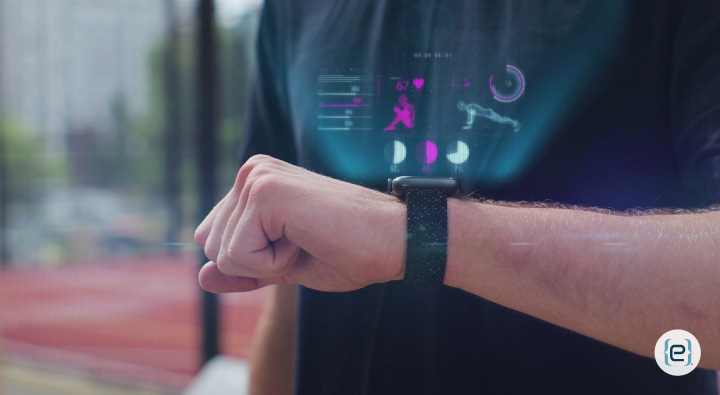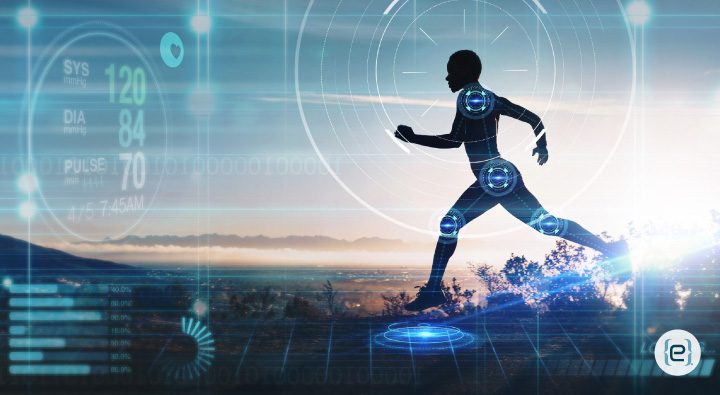AI’s Impact on Athletic Performance
The world of sports is changing fast. Artificial intelligence (AI) is making a big impact on how athletes train, play, and improve. From helping coaches make better choices to giving fans new ways to enjoy games, AI is shaking things up in sports. AI is being used to boost player performance, prevent injuries, and improve game strategies. Teams are using data from wearable devices and cameras to track how players move and make decisions on the field. This info helps coaches and athletes spot areas where they can get better and stay healthy.
AI is also changing how you watch sports. It’s making it easier to buy tickets, get updates on your favorite teams, and even help refs make the right calls. Who knows, maybe one day we’ll see robot umpires calling balls and strikes! But for now, AI is working behind the scenes to make sports more exciting and fair for everyone involved.
Evolution of AI in Sports
AI has transformed sports over the past few decades, impacting everything from training to fan experiences. Let’s look at some key milestones and technological advances in this exciting field.
- Historical Milestones: The 1950s saw the birth of AI, but its use in sports came much later. In the 1990s, basic AI systems started analyzing game footage, helping coaches spot patterns and improve strategies. By the early 2000s, AI-powered tools began predicting player performance. Teams used this data for recruitment and training. The 2010s brought a big leap forward as machine learning algorithms crunched vast amounts of data to give teams a competitive edge. In 2016, AI made its Olympic debut in Rio, helping with everything from security to scheduling. The 2020 Tokyo Olympics (held in 2021) saw even more AI integration, with virtual reality training and smart equipment becoming commonplace.
- Technology Advancements: AI’s role in sports has grown thanks to better hardware and software. Sensors have gotten smaller and more accurate, tracking almost every aspect of an athlete’s performance. Computer vision has improved dramatically, allowing AI to analyze video in real-time, spotting tiny details humans might miss. This advancement aids refereeing and player development. Virtual and augmented reality have created new training possibilities, enabling athletes to practice complex scenarios without risk of injury. Fans can enjoy immersive experiences from home. AI-designed equipment is the latest frontier, with algorithms creating gear tailored to individual athletes or specific conditions. Who knows? Your next pair of running shoes might be designed by a computer!

AI Applications in Sports
Artificial intelligence is transforming sports in exciting ways, changing how teams strategize, helping keep athletes healthy, and giving fans new ways to enjoy the action. Let’s explore some key areas where AI is making a big impact.
- Game Strategy and Analytics: AI helps teams and coaches make smarter decisions by crunching huge amounts of data to spot patterns human eyes might miss. For example, in soccer, AI tracks things like how many passes players complete and how many goals they score compared to what’s expected. This info helps coaches figure out the best lineups and game plans. AI also helps with scouting new talent, looking at a player’s stats and videos to predict how well they might do in the big leagues. Some teams even use AI to practice against virtual opponents, helping them prepare for real games. During live games, AI-powered cameras can follow the action automatically, giving fans better views and helping refs make tough calls.
- Health and Injury Prevention: Keeping athletes healthy is super important, and AI is a big help here too. Smart wearables track things like heart rate, sleep patterns, and how hard players are working during practice. This info helps trainers spot when someone might be at risk of getting hurt. AI can also make custom workout plans for each player, looking at their strengths, weaknesses, and injury history to create the perfect training program. This helps players stay in top shape and avoid getting hurt. Some teams use AI to analyze how players move, warning coaches before a small issue turns into a big injury.
- Fan Engagement and Experience: AI is making watching sports more fun for fans too. Chatbots can answer questions about game stats or player info in real-time, which is great for fantasy sports players who need quick updates. Some stadiums use AI to manage crowds and keep lines short, predicting busy times and telling staff where to open more food stands or ticket windows. AI even helps create highlight reels, picking out the most exciting moments from a game and stitching them together automatically. This means fans can catch up on the action quickly, even if they missed the live game. Virtual and augmented reality powered by AI are bringing fans closer to the action. You might soon be able to watch a game from your favorite player’s point of view!
Challenges and Considerations
AI in sports faces several hurdles, including ethical questions, accuracy concerns, and privacy issues. Each area requires careful thought as AI becomes more common in athletics.
- Ethical Implications: AI in sports raises fairness questions. Some teams might gain unfair advantages through better AI tools, widening gaps between rich and poor clubs. AI could also change how we view human achievement in sports. If machines help too much, it might devalue athletes’ hard work and natural talent. There’s also worry about job losses, as AI might replace some coaches, scouts, and other sports staff, potentially hurting many people’s careers.
- Accuracy and Fairness: AI systems need lots of good data to work well, but sports data can be messy or biased, leading to wrong choices or unfair treatment of some athletes. AI might also struggle with rare events in sports, as a once-in-a-lifetime play could confuse the system. There’s also the risk of AI making mistakes in high-stakes moments, where a bad call in a big game could have huge impacts.
- Privacy Concerns: AI in sports often uses personal data from athletes, including health info, performance stats, and even genetic data. Keeping this info safe is crucial. Athletes might feel their every move is watched and analyzed, creating stress and harming their mental health. Fans’ data is also at risk, as AI systems that personalize viewing experiences might collect too much personal info. As AI grows in sports, finding the right balance between innovation and privacy will be key.
Conclusions
AI is changing sports in big ways. It helps players get better and stay healthy. Coaches use it to make smarter choices during games. Fans are getting cooler experiences too, with AI providing more info and fun ways to watch games. Teams are using AI to find new talent and make better business choices, helping them save money and grow their fan bases.
But there are some bumps in the road. Getting good data can be tricky, and some people worry about privacy when AI tracks everything. Still, AI in sports is here to stay, making games more exciting and fair. Who knows? Maybe one day we’ll see robot referees! (Just kidding… or are we?)
As AI keeps improving, we’ll likely see even more cool stuff in stadiums and on TV. The future of sports looks high-tech and action-packed. Contact eMazzanti today to learn how we can help your team leverage AI for improved performance and fan engagement.







